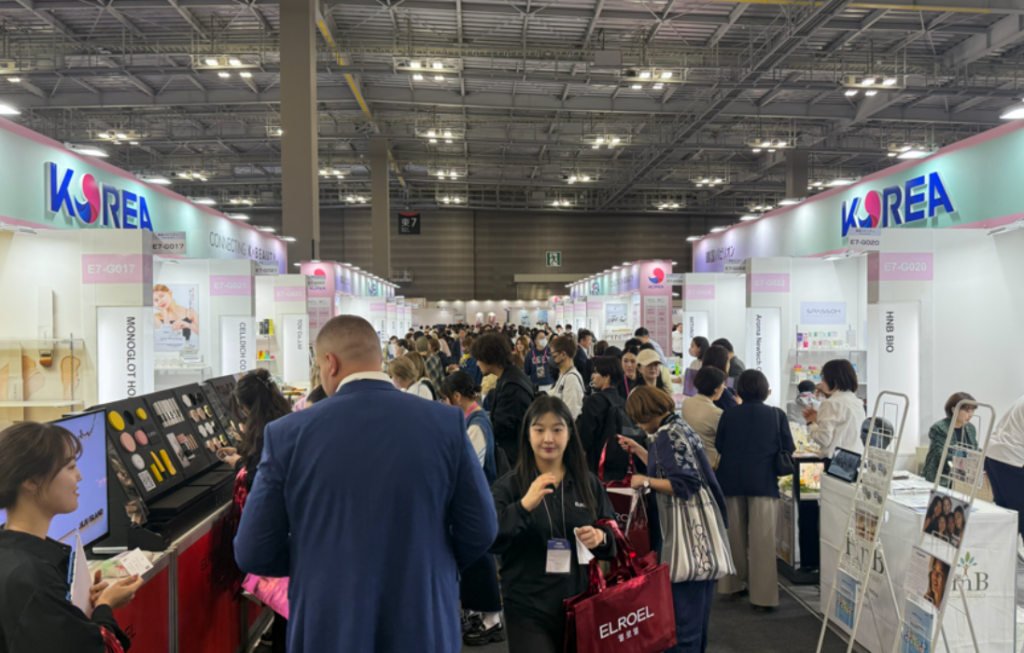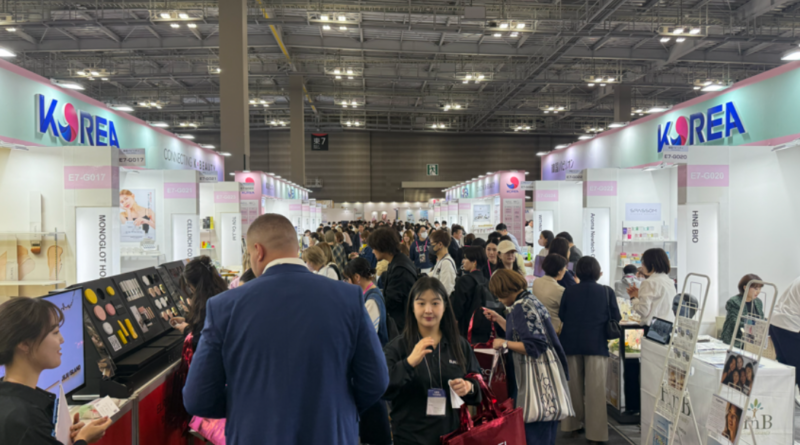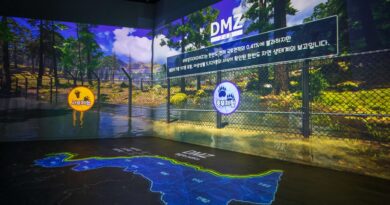Korean Government Unveils Comprehensive Strategy to Boost K-Beauty Exports Through Creator Support, Global Expansion, and AI-Driven Innovation

The Korean government has announced an extensive strategy to strengthen the global competitiveness of the K-beauty industry, outlining measures that range from supporting creators and small businesses to expanding overseas networks and advancing AI- and eco-friendly technologies. The Ministry of SMEs and Startups and the Ministry of Health and Welfare presented the plan, titled “Measures to Enhance and Expand K-Beauty Export Performance,” at the National Policy Coordination Meeting presided over by Prime Minister Kim Min-seok on the 27th.
At the core of the strategy is the government’s commitment to expanding the global presence of beauty creators and small business owners. By 2030, the government plans to identify and foster 300 young beauty creators, and by 2026, select 500 high-potential small business teams and nurture them into export-focused enterprises through collaborations with startups. To support this process, a full growth pipeline will be established—from product planning and branding to international marketing and market entry. A new “One-Click First Export Package” will also be introduced, enabling online-proven brands to transition into offline markets with integrated consulting, localization, and promotional support.
The government also plans to strengthen multi-dimensional overseas marketing linked with K-culture, leveraging the global popularity of K-pop, Korean dramas, and major cultural events in target countries. Social media promotions using influencers and local agencies will be expanded. Through a pilot K-Beauty Cluster initiative, experiential and exhibition-focused export programs will be rolled out and expanded to about eight regions by 2030. Export product development for categories such as fragrances and air fresheners—where export growth has been relatively slow—will also be supported.
To drive technological breakthroughs, the government will accelerate AI-based and eco-friendly innovation within the K-beauty and healthcare sectors. A high-tech program that integrates AI into beauty and health products will be launched, with around five AI collaboration projects to begin next year. A ₩40 billion (approx. 30M USD) K-Beauty Fund will be created to stimulate investment, while digital manufacturing upgrades and expanded financial support—including K-Beauty loans and guarantees—aim to build a robust production ecosystem responsive to global demand.

Expanding the global footprint of K-beauty is another key pillar. The government will designate and pilot four “K-Beauty Overseas Base Embassies” to provide tailored support such as local market research, certification assistance, and promotional programs through the Overseas SME Support Council. Ten pop-up booths will be installed next year in emerging markets, and new large-scale cosmetics retail spaces will be set up in the U.S. and EU, increasing the number of K-beauty flagship stores worldwide to eight. The government also aims to discover 500 promising export products by 2030 by strengthening public-private joint overseas marketing across sectors such as fashion, lifestyle, and food. Anti-counterfeiting monitoring and response support will also be enhanced to protect Korean brands.
For eco-friendly and clean beauty innovation, the government will establish a Natural Cosmetics Testing and Inspection Center in Namwon, Jeollabuk-do, and develop full-cycle clean beauty infrastructure—including raw materials, production, and packaging—in Osong, Chungcheongbuk-do. Support for raw material mass production facilities, as well as R&D for high-value new materials and next-generation cosmetics, will be expanded. Personalized beauty product development utilizing skin and genome data collected from 16,000 participants in 19 countries will be accelerated, and AI teamwork solutions specialized for manufacturing will be introduced through 12 new projects next year. The Manufacturing AI Center will provide proof-of-concept testing and consulting.
To address U.S. OTC regulatory requirements, the government will support local manufacturers in registering FDA production facilities starting next year, and provide safety evaluation data for high-use cosmetic ingredients. Training programs will also be expanded to cultivate around 500 professionals annually. In addition, the government will enhance a customized AI-based regulatory information platform and operate the Osong International K-Beauty School to train both domestic and international professionals.
Institutional support is also included. The Ministry of Health and Welfare plans to promote legislation for the Cosmetics Industry Promotion Act, which will establish a certification system for innovative cosmetic companies and a new industry development committee. The Ministry of SMEs and Startups will push for the SME Overseas Expansion Support Act to create an integrated, cross-ministerial export support system.
Minister Han Sung-sook of the Ministry of SMEs and Startups stated, “K-beauty has firmly established itself as a global beauty powerhouse, and the government will actively support companies with export capabilities so they can secure their position as global premium brands.”
Health Minister Jeong Eun-kyung added, “We will strengthen Korea’s competitiveness across the entire cosmetics value chain—from raw materials and packaging to manufacturing (ODM) and exports—and drive our industry to rise to the world’s No. 2 cosmetics exporter.”








